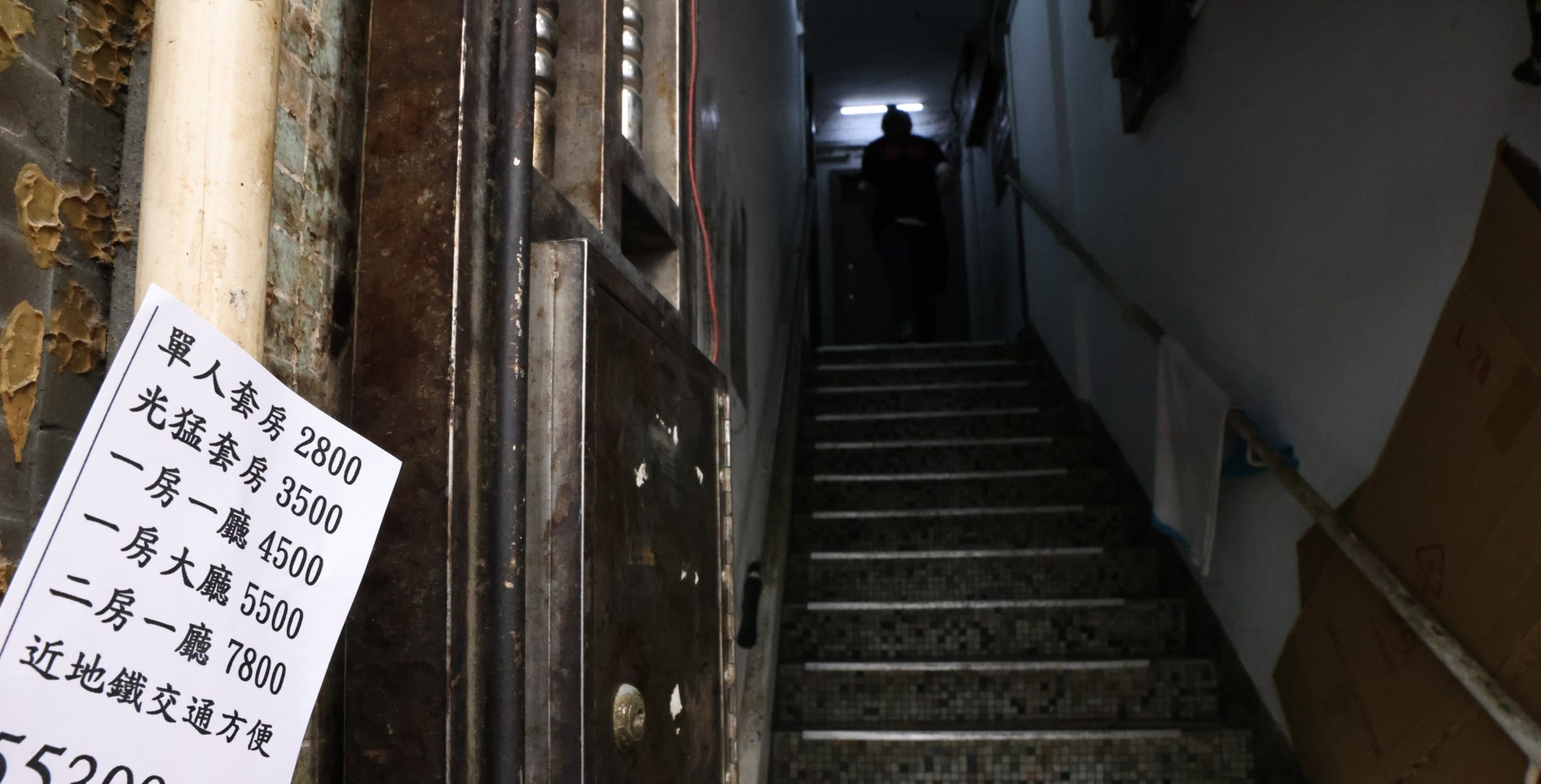Calls to regulate initial rent levels in Hong Kong’s notorious subdivided flats dismissed by senior housing official
A housing official has dismissed calls for the government to regulate initial rent levels in Hong Kong’s notorious subdivided flats despite criticism by legislators that a law controlling various charges is not enough to protect tenants.
Undersecretary for Housing Victor Tai Sheung-shing argued that it was impractical for the government to set rent levels for individual subdivided flats because prices were determined by various factors, including location, size and facilities provided.
“A government-set rent level may not be fair to all residents [of subdivided flats],” Tai told lawmakers at a meeting of the Legislative Council’s housing panel on Monday.
“The major aim of government policy is to protect the living environment of the residents and help them resettle in more adequate housing. Imposing initial rent levels for them cannot ensure they will have a good living environment.”
At the centre of Monday’s discussion was the Landlord and Tenant (Consolidation) (Amendment) Ordinance, which came into effect in January 2022.

The ordinance caps rent rises for subdivided flats at no more than 10 per cent per two-year lease period. Occupants and landlords must also sign a standard tenancy agreement setting out the rent, deposit, utility charges and fees incurred in the event of a breach of the contract.
The law also stipulates that electricity and water charges for all tenants in a subdivided unit must not exceed the total stated in the bill for the whole flat. Violators face a maximum fine of HK$10,000.
But concern groups have long urged the government to regulate initial rent levels. They said some landlords set rents at a higher rate knowing they could not ask for a further increase until the end of the two-year contract.
Questioning Tai, lawmaker Michael Tien Puk-sun of the Roundtable group said: “If the Rating and Valuation Department can assess the rateable values of various properties, there is no reason the government cannot determine a rent level for individual subdivided flats.”
He added: “Without the initial rent levels getting regulated, the law cannot offer any protection to needy residents. It flatly exposes residents to exploitation.”
A department study of 22,466 tenancy agreements found that the median monthly rent of subdivided flats was HK$5,100. Nearly half were between HK$4,000 and HK$5,999, legislators heard.
380 households at Hong Kong public rental estates own private flats
380 households at Hong Kong public rental estates own private flats
According to official figures, as of the end of February, there were 2,941 cases of landlords suspected of breaching the law, of which, 153 were successfully prosecuted, with fines ranging from HK$500 to HK$18,600.
Prosecutions had been initiated in another 63 cases with hearings pending.
Panel deputy chairman Vincent Cheng Wing-shun of the Democratic Alliance for the Betterment and Progress of Hong Kong urged the government to raise the penalty.
“Who will bother to observe the law if the consequence is a fine of several thousand dollars?” he said.
3 new Hong Kong ‘community living rooms’ for people in subdivided flats to open
3 new Hong Kong ‘community living rooms’ for people in subdivided flats to open
Legislators on Monday also backed a one-year extension for a trial scheme providing cash allowances to eligible needy families who have queued for public housing flats for more than three years.
With government funding of HK$8 billion, by end-February, HK$4.25 billion had been disbursed to about 97,500 households since the trial scheme was launched in June 2021.
Monthly allowances range from HK$1,300 for a single-member household to HK$3,900 for ones with six or more people.
About 221,700 applicants are on the waiting list for a public flat. The average waiting time is 5.8 years. Officials said they expected the time to fall with the projected increased supply in public flats in the coming few years.
Before Monday’s meeting, representatives from an alliance for subdivided flat tenants petitioned some of the lawmakers. They argued that the low prosecution numbers showed the rent control scheme was not effective.
They also wanted the cash allowance scheme to be regularised.



